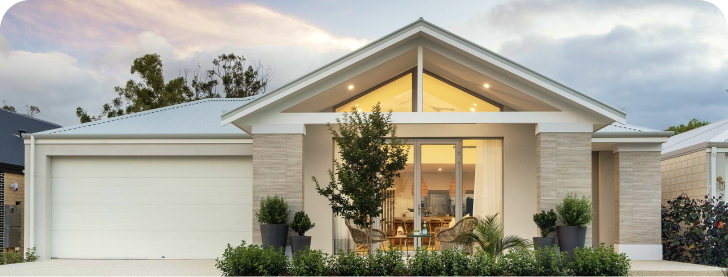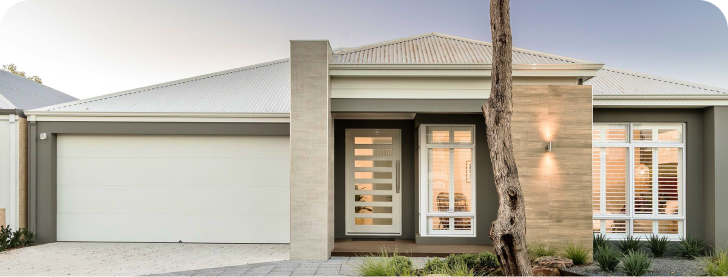
There are plenty of reasons to build an accessory dwelling unit (ADU), starting with enlarging useful space for storage or living and ending with receiving rental income or creating greater property value. Moreover, many homeowners choose to build a self-sufficient accessory unit near their main house to make this place their home office, where they can work remotely or run their businesses.
However, along with all the benefits, adding an ADU to your property also means a change in your individual taxes. As an ADU owner, you should be aware of all the effects ADUs have on the sum of taxes payable per month and how to receive tax deductions to save more money.
ADU property owners have a right to deductions if they use their accessory dwelling unit for business purposes. In an instance where you use your ADU to run a home-based business, you may count on favorable ADU regulations that offer tax deductions.
Therefore, several points you should take into account to get entitled to deductions and calculate them correctly are the following:
To be eligible for yearly deductions, you must use at least some part of your newly constructed ADU for business purposes. You can’t rent it all out for some time and then go back to selling goods from your ADU. Running your business from the ADU should be regular, not occasional.
Small businesses can save some money by assessing how much of their property they devote to home office space. For instance, your ADU is 1000 sq. ft., while your home office is only 200 sq. ft. In this case, your business’s use percentage will be 20%.
Direct expenses from your home office, such as business equipment or the cost of its repairs, are deductible. The same applies to indirect expenses related solely to your business, such as utility payments, property taxes, etc. Mind that you can only recover expenses that come from your business operation, not from your primary residence.
If a property owner has to pay self-employment taxes, they can also receive a deduction on their individual tax return. By these means, you can recover part of the payments for social security and medical insurance.
Depreciation is the gradual deterioration of your existing property state. When your new ADU designed for business begins to wear out, it’s time to receive some of your taxes back.
So, what do you start with? First things first, pay attention to the next considerations:
As we mentioned before, you can retrieve direct and indirect expenses associated with your business if you maintain your bills, receipts, and invoices accurately. In this case, when the time comes, you submit these as proof for your calculations.
Note that from more specific types of deductions, you can also get returns of money for using your phone or Internet for work, home office supplies such as cartridges for printers, postal expenses, pens, pencils, etc. If your business requires extra security measures or insurance, you may also deduct some portion of these expenses.
As for the procedure, you need to check your eligibility (if your business in an ADU falls under the term “home-based business”), determine and calculate business expenses, collect all necessary records, fill out a tax form, attach the documents you gathered, and file this all together with your income taxes.
Deductions for improvements are payments that we strongly associate with depreciation. What you need to do first in order to assess them is distinguish between capital and mild improvements.
You can receive deductions only for the first category, so make sure the improvements you enlist affect your ADU use significantly. These can include adding a spare doorway, moving the wall, installing cabinets and racks, or renovating the space for the convenience of your business.
You get the money paid for these improvements over time through depreciation, and what matters are only changes that influence business use. The same as with other deductions, you have to document all such improvements along with the sums spent on them. Then, you have to calculate your annual depreciation cost with respect to the useful life of the improvements before you file your tax documentation.
Deductible utility and maintenance payments are those that you use for your business activities only. After you have already calculated every square foot that belongs to the business space, you also count the amount of water, electricity, and gas payments, as well as equipment repairs and office remodeling expenses that you can deduct.
For this purpose, you need to multiply the percentage of business space by the total space by the sum of all payments for utility and ADU maintenance. Keep utility bills and maintenance bills in a secured place (in a safe, for example) and attach them to your income tax return when you submit them to the tax authorities.
When building an ADU for business, it makes sense to secure your assets and the activity itself with the possibility of regaining deductions. There are three types of insurance that an ADU owner and businessman can have:
This is general insurance, which covers any harm or damage to the homeowner’s property. It includes the interior and exterior of the house within your possession. Homeowner’s insurance offers compensation for loss of property, destruction of objects, theft, and other types of physical harm.
It covers the same aspects as general homeowner’s insurance, with the only difference being that it applies only to business assets. That’s why you can deduct insurance payments as opposed to homeowner’s insurance ones.
If your business can accidentally cause injury or property damage resulting in lawsuits, it may be reasonable to secure your liability. A sole proprietor, limited liability company, or small business owner usually resorts to this type of insurance to protect themselves from large claims. Insurance liability for businesses is tax-deductible.
Property taxes are sums of money you pay annually for owning your land and real estate. You calculate them based on your property’s assessed value. Local authorities to which you pay them conduct property tax reassessments every time you significantly add value to your assets.
As you start your business after a new tax assessment, you need to determine how much of the ADU square footage you dedicate to business purposes. Because another part of ADU that you use for personal needs is not deductible.
In simple words, you need to put up a property tax and deduct from it the monetary equivalent of the percentage of ADU you use for business activity.
Concerning mortgage interest, take note of two deduction options that an ADU-based business owner can usually claim:
If you take a loan to improve your living conditions, which includes building an ADU or making other significant improvements to your main house, you are able to deduct your mortgage interest and thereby reduce your taxable income.
If your mortgage has a portion of interest related to business purposes, then you can deduct business expenses. Let’s say you took out a loan to pay for building an ADU space for storing your goods. You are entitled to deduct this part of the mortgage interest.
If you repair your ADU in order to restore its condition and bring it back to the operational properties necessary for business, you have a right to deductions. For example, when your ADU wires burn down, money spent on repairing them is a deductible expense.
Another rule applies to ADU remodeling, with the goal of facilitating ADU conditions and tailoring them to business needs even better. They are not deductible at first, but later in time, you can claim depreciation and return these expenses as well.
Last but not least, if you plan a complete ADU remodeling or repair of the whole ADU, you can deduct a portion of the money used as expenses for remodeling and repairing areas dedicated solely to the business. Your storage space, the place for keeping equipment, or the home office for you or even your employees are good examples of ADUs as business areas.

Capital gains are the amount of money you receive for selling capital property. This property includes your main residence and your ADU as well.
Capital gains are subject to taxation, but there are a few ways to regain some of these funds:
It’s available for ADU owners who have a title to the property and use it for living for a long enough time. If you meet the criteria, it allows you to exclude tremendous sums from the taxable value of capital gains (up to $250,000).
Capital gains tax from selling business property is not deductible. That is why if you use your ADU only for business goals, it’s predominantly impossible to claim deductions here. However, if for these purposes you use only your ADU part, you can allocate the share of capital gain that comes from the business part of your ADU and thereby receive some deductions from the rest.
Beware that if you claimed depreciation and recouped the amount of money paid for ADU, it’s likely you’ll have to refund some share of the sum upon selling. To learn more details about this process, it’s essential to get expert advice from a tax professional.
In contrast to such perks as added value and the opportunity for rental income, adding an ADU to your living space affects your regular property tax bill. But even though the completed ADU project does increase taxes, these sums are not so big. As a rule, property tax rates range from 1 to 1,5%. So, if you paid $150,000 in construction costs for building an ADU, you may expect a rise in your regular property tax bill of around $1,500 per year.
For property tax purposes, a reassessment of your main home will not follow. What matters for your tax amounts is not your property value as a whole but only the cost of the ADU. This way, the new assessment just adds up to the existing assessment of your house. This procedure is commonly referred to as blended assessment.
ADUs are incredibly flexible buildings that you can use as a large investment in your prosperity. Such a big addition to your living space will immediately affect the amount of space suitable for living, relaxing, and storage. You can use your ADU as a guest house or as a rental unit, build a junior ADU for growing kids, and spare the money of their parents so that children can attend better schools. Despite all the hustle with additional taxes and building permits, the benefits of an ADU outweigh the cons.











